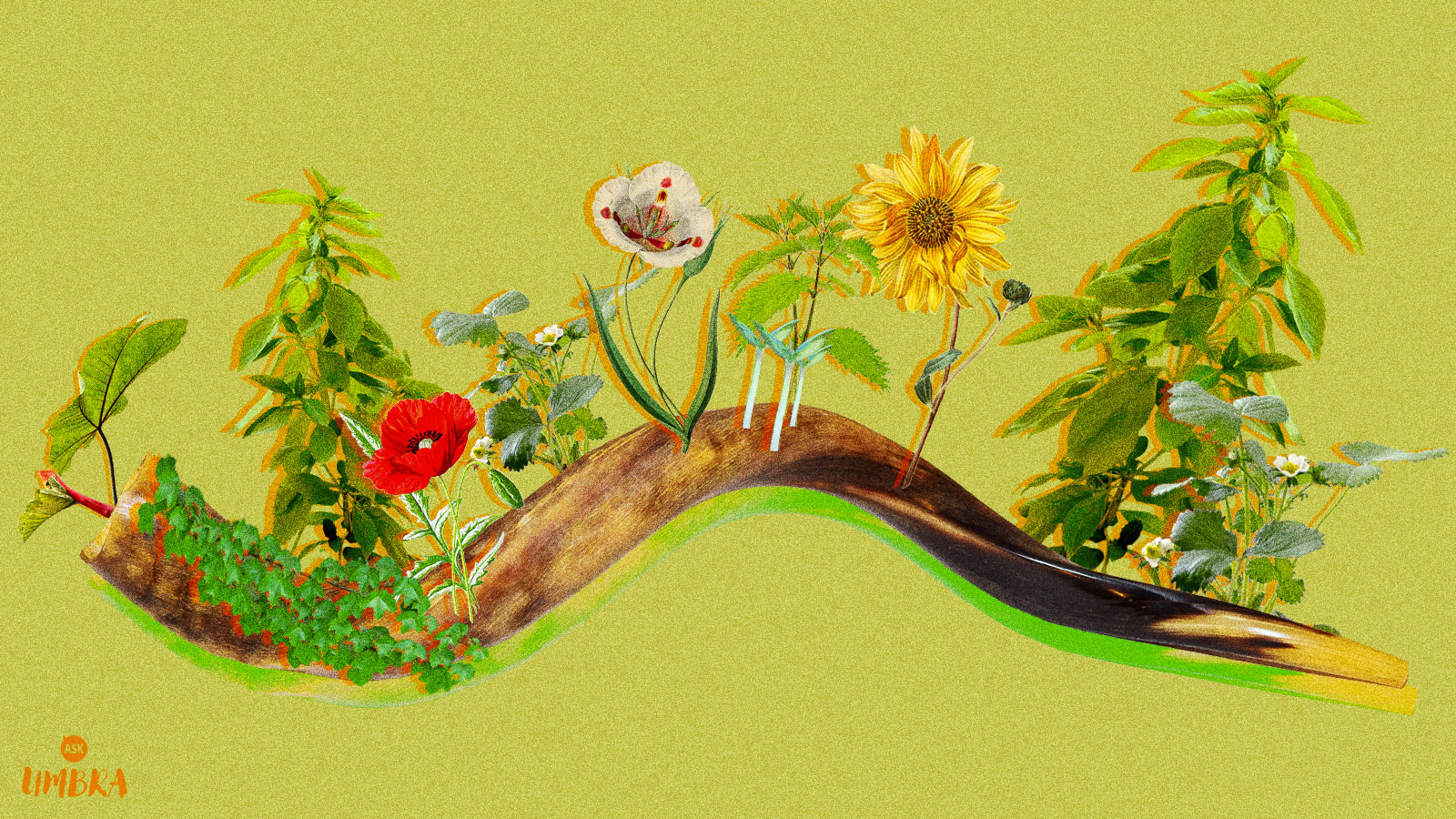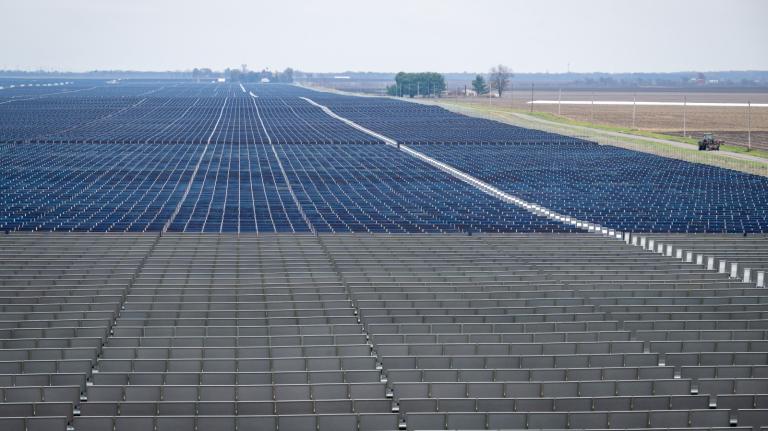Q. Dear Umbra:
As a Jewish and environmentally conscious person, how can I use the framework of Rosh Hashanah to combat climate change?
— Let’s Contemplate How Atonement Instills Motivation
A. Dear L’CHAIM,
Like any good Jewish girl, I spent seven years attending Hebrew school every week to prepare for my Bat Mitzvah. Jews have been around for a really long time! There’s a lot of history to cover! And then at some point shortly post-Bat Mitzvah, I forgot most of it.
So I’d like to thank you for sending me a golden opportunity to brush up on my Jewish knowledge. I’m sure you know all this, but for our Gentile friends reading this: The period that starts with Rosh Hashanah and ends with Yom Kippur is considered the most important time of the Jewish year. It’s called the High Holidays, the Days of Awe if you’re feeling dramatic, or the Days of Repentance if you love to focus on the negative!
Basically, on Rosh Hashanah we celebrate the start of the New Year. But because nothing in Judaism comes without a little existential angst, it’s also the kickoff of a ten-day period where you examine your soul (that is the command!), make your apologies for all the ways you’ve fallen short, and make your commitments to improving in the year to come. Then on Yom Kippur, you fast for 25 hours as you really focus on all your misdeeds and how to atone for them.
Look: No one can say that Jews don’t know how to have a good time!
Those ten days are an audition for the Book of Life vs. the Book of Death, which are pretty much exactly what they sound like. If you’ve done good by God and the world, you go in the Book of Life. If you’ve spent the year doing evil things, you go in the Book of Death. If you’ve been kind of in-between, as the vast majority of us are, you’re supposed to use the Days of Awe as an opportunity to atone for the bad you’ve done and hope that the good shines through. And if all goes well, you can make it into the Book of Life by Yom Kippur, when “it is sealed.”
It doesn’t escape me that that’s the exact language that’s used by some climate activists to discuss the 2030 deadline to drastically reduce climate emissions. But the whole thing seems like a metaphor for climate change obvious enough to make Herman Melville roll his eyes: If you do the right thing — (forcefully) push your elected officials to enforce climate action, properly punish businesses that subvert it, and all of the smaller but crucial daily things you can do in between — we’re all more likely to live. If you don’t, we’ll all die. There’s a line in the Rosh Hashanah service that literally asks, “who shall perish by water and who by fire?” More and more by both, to be sure, especially if everyone continues to wander around in this sort of pervasive denialist daze!
It would be easy to take an extremely Old Testament (shame-y, bleak, hard to process) approach to the High Holidays as a framework for your approach to climate change. But I do not want to paint the High Holidays in terms of the death and darkness we’re all trying to avoid; I want to observe them in spirit of the life we’re trying to build.
This is where your question starts to get personal for me. I’ll be going home to Pittsburgh for the High Holidays for the first time in a few years, and this particular Rosh Hashanah and Yom Kippur carry a great deal of weight for me, my family, and my congregation. Last October, a white supremacist terrorist invaded our temple in the deadliest and highest-profile attack on the Jewish community in American history. The former president of our congregation is dead. It is bizarre to have such a keystone of your home and your upbringing become internationally known for the violence it has endured, particularly when you’re watching it all from thousands of miles away.
When Rosh Hashanah comes around, our services will not be held in the Tree of Life temple because it’s been closed since the attack. Dor Hadash has always been an itinerant congregation, so a change of setting isn’t out of the ordinary, but I have no idea what it will be like to be somewhere new knowing why we had to leave our last home.
I had a hard time trying to see the bright side of Rosh Hashanah on my own. So I called Rabbi Cheryl Klein, who lead Dor Hadash as a cantor for my entire upbringing, and of course she helped me, like she did when I was thirteen years old stumbling my way through the haftorah.
Klein pointed to the three values that are supposed to get us into the Book of Life: teshuvah, tefillah, and tzedakah. Tzedakah is what a lot of people tend to translate as “charity,” but it really means “justice”; it’s just that giving money or time to good causes is often seen as the most effective way to achieve that justice. Tefillah means prayer, and teshuvah is a little more complex; it refers to recentering yourself around to your true values, to your most righteous self.
“These three things together, they allow us to have a fresh slate,” Klein explained. “Teshuvah means ‘to return.’ How do we return to those things that are so basic in terms of our humanity, our values, our moral compass? It’s an action — we have to physically put ourselves onto the physical, emotional, and spiritual path that will allow us to make better choices.”
The Jewish environmental organization Hazon is actually recognizing the new year, 5780, as the Year of Environmental Teshuvah. “It’s totally true that so many parts of this are so messy and overwhelming, but I think Jews, in general, are able to hold paradox in our tradition,” says Isaiah Rothstein, Hazon’s resident rabbi. Rothstein explains that while the realities of climate change — both the distressing consequences and the degree of international collaboration necessary to avoid them — can be paralyzing, the choice to live in accordance with your values day-to-day is very straightforward. Addressing climate change can be simultaneously a huge social challenge and a matter of personal choice.
All this is to say that Rosh Hashanah is supposed to remind you how to live, in the simplest and most basic sense. There’s a book about using the Days of Awe as a period of self-transformation, and I didn’t read it to answer your question because there’s a waiting list at the library and my values prevent me from ordering unnecessarily from Amazon. See! I’m refusing to lie to you, which is a mitzvah. But honestly, I think the title is enough, and it’s This Is Real and You Are Completely Unprepared. That’s in reference to the process of self-reckoning and -examination that the Days of Awe require, but it’s also a great slogan for climate change. It is real. You and I and everyone else are completely unprepared. It’s the ideal time to put yourself, as Klein says, on the right path.
So: Do you want to support forces of death, or do you want to strengthen forces of life? People love to say that climate change is this huge, complicated, overwhelming issue, but it’s actually as straightforward as that.
The ways in which you approach and deal with climate change are more nuanced, to be sure. Every day you are going to face decisions whose answers aren’t quite clear. And I’m no rabbi or spiritual leader or even that wise, when it comes down to it; but if you come to me, I promise you that I’ll do my very best to help you make those decisions. That’s my commitment.
Shanah tovah,
Umbra



